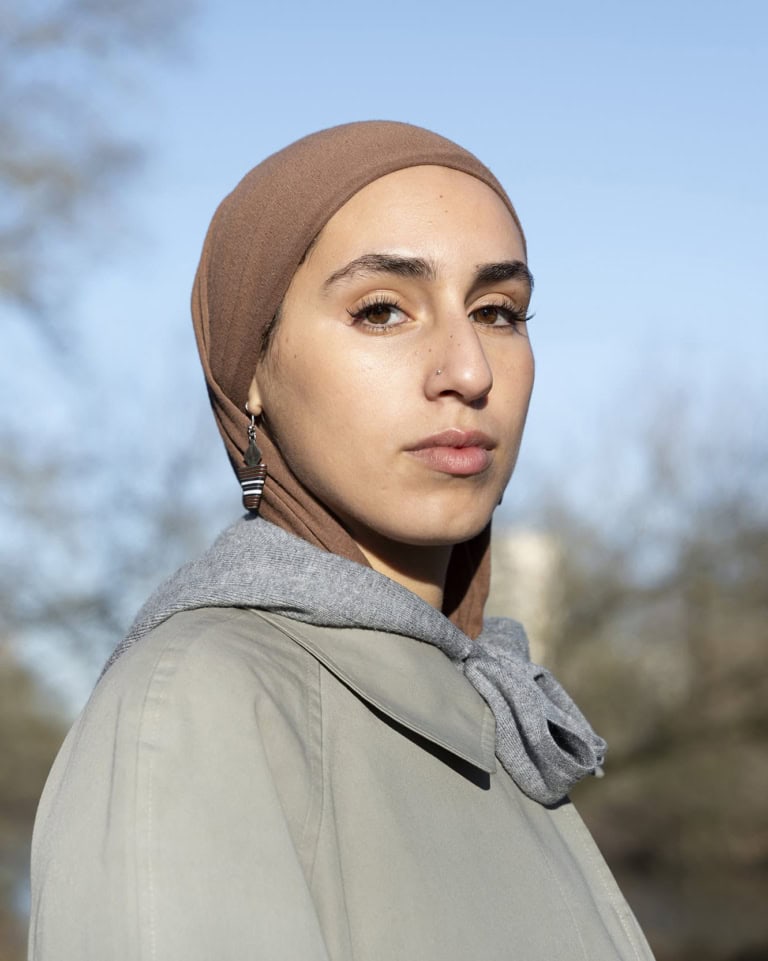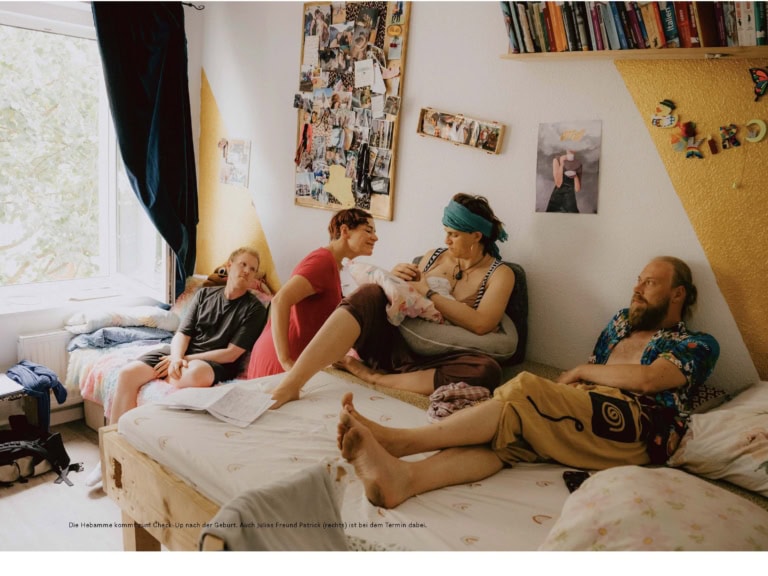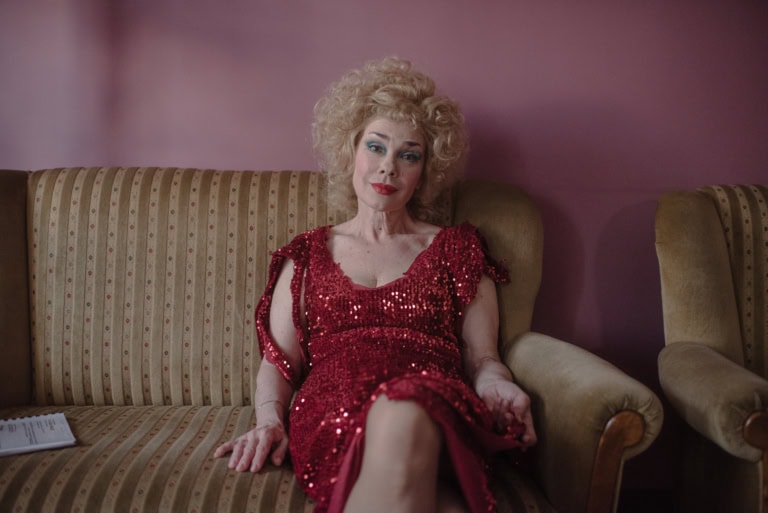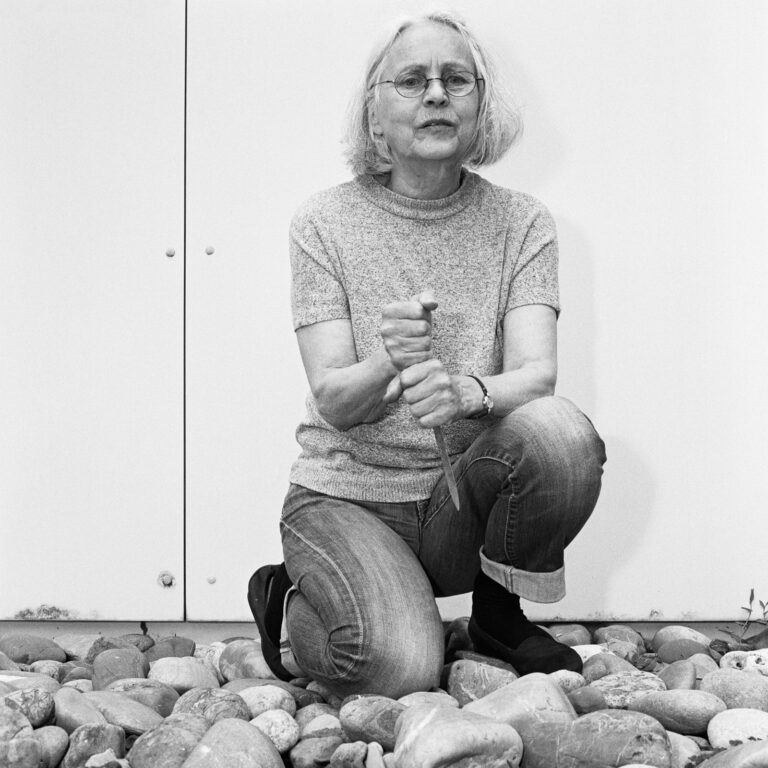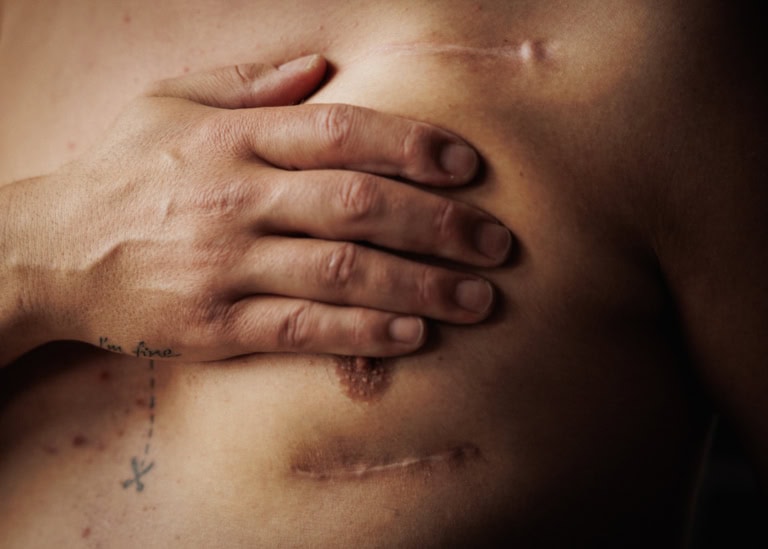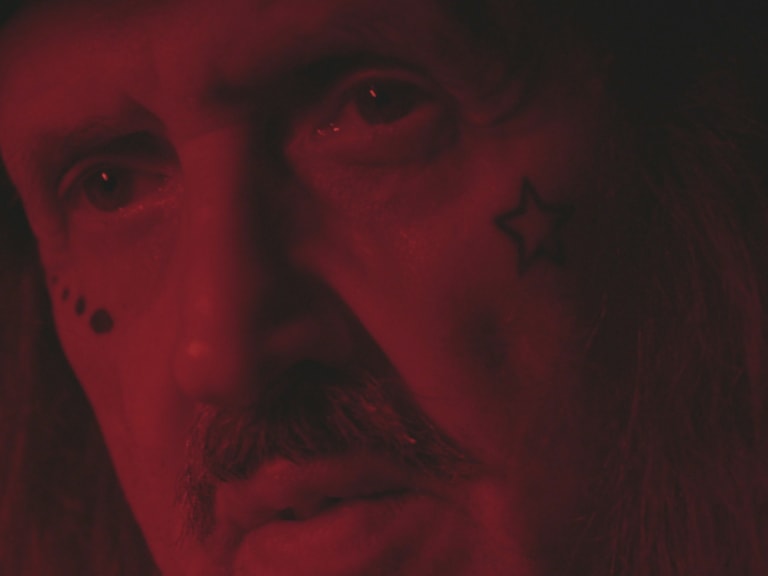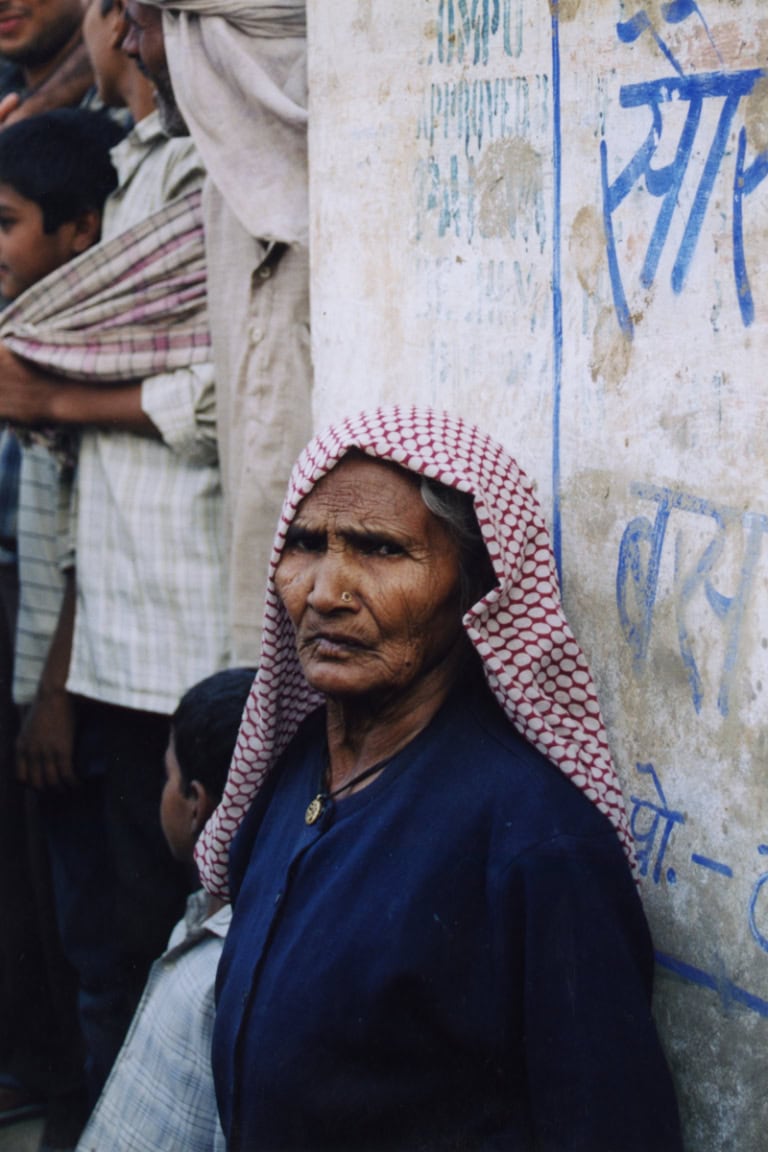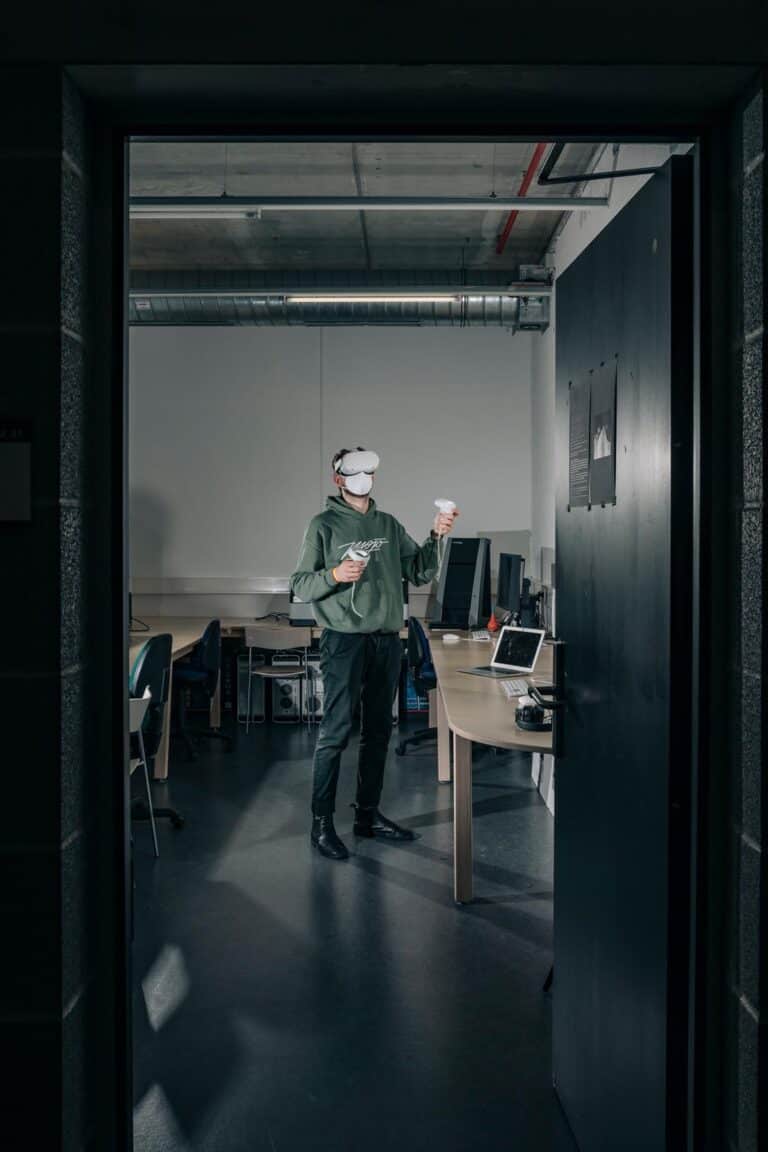Milchkanne trifft Mischpult
Kaum ein Ort in Polen ist so dünn besiedelt wie Podlachien. Doch während viele gehen, versuchen einige, genau hier etwas Eigenes aufzubauen – aus Überzeugung oder aus familiärer Verbundenheit.
Von Pasha Kritchko (Fotos) und Jelko Wronski (Text)
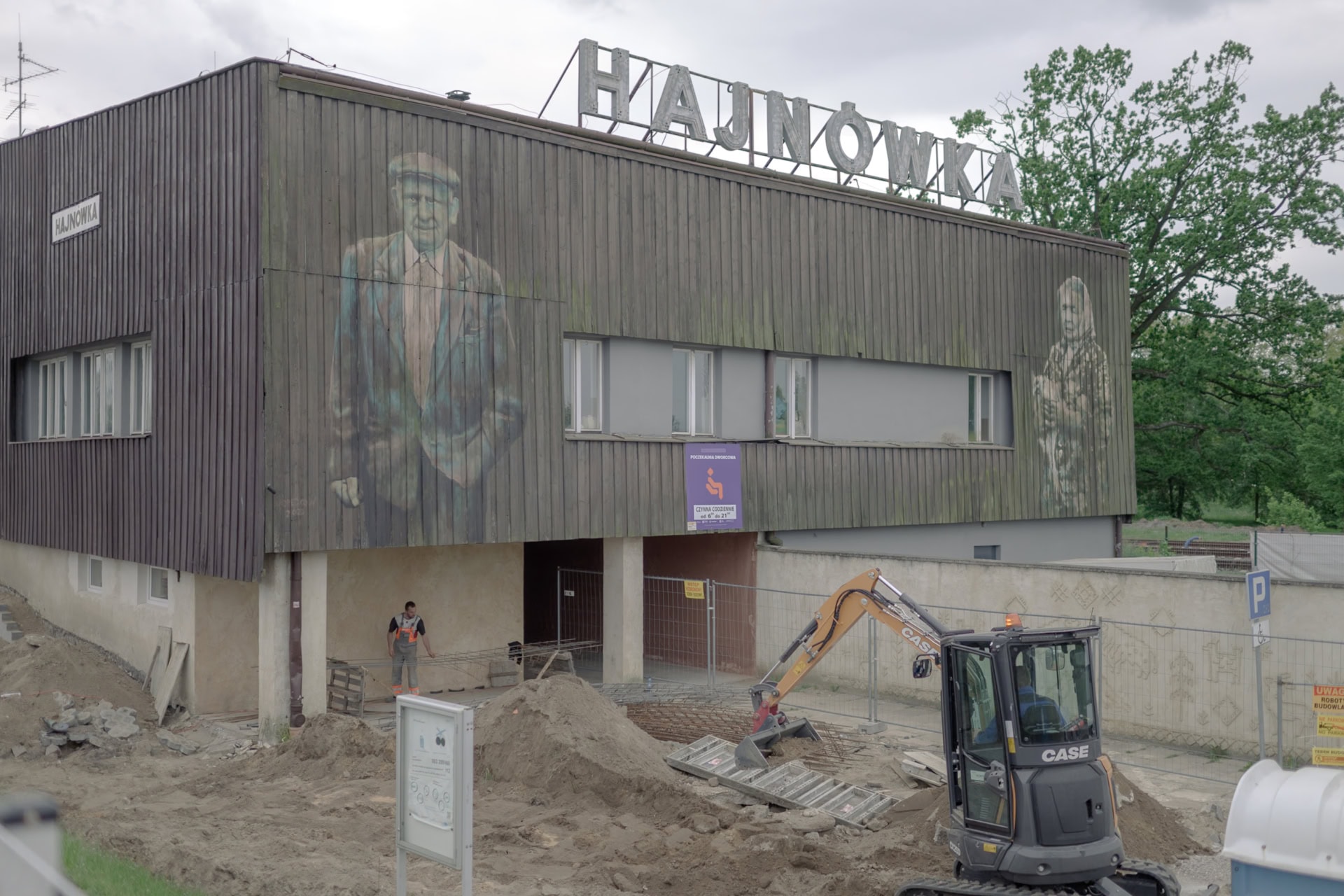
Maria reicht frisch gebackenes Hefegebäck über den Tisch. Es ist Ostersonntag, die Familie hat sich zum Frühstück versammelt. Mit am Tisch sitzt Pasha Kritchko, Fotograf und Student der internationalen Klasse in Hannover. Am Vorabend war er in ihrem abgelegenen Dorf angekommen – spät, erschöpft, aber willkommen. Das Osterfrühstück ist mehr als eine Mahlzeit: Es ist Ritual, Erinnerung, ein stilles Zeichen von Verbundenheit.
Wenige Dörfer weiter bereiten Dorotheus Fionik und seine beiden Söhne ein Frühlingsritual vor. Später wird Musik gespielt, gegessen, gesprochen. Auch Elias, der Jüngere, wird dabei sein – wenn er nicht gerade in seinem improvisierten Studio in Bielsk sitzt, um traditionelle Dialekte mit neuen Beats zu verbinden. Dass er sich das leisten kann, verdankt er seinem Nebenjob im Kebab-Laden.
Podlachien zieht sich durch den nordöstlichen Zipfel Polens, an der Grenze zu Litauen und Belarus. In der Hauptstadt Białystok leben rund 300.000 Menschen – gut ein Viertel der gesamten Bevölkerung der Woiwodschaft. Abseits davon sind große Teile der Region fast menschenleer. Kaum ein anderer Ort in Polen ist so dünn besiedelt. Unfertige Baustellen und verlassene Parkplätze erzählen von einer Region, die langsam verstummt.
Für junge Menschen bedeutet das Leben hier oft eine Entscheidung zwischen zwei Optionen: entweder bis ins hohe Alter harte Arbeit verrichten oder alles riskieren, um ihre Träume zu verfolgen. Pasha Kritchko hat Podlachien bereist und berichtet von Begegnungen mit Menschen, die trotz widriger Umstände ihren Alltag bewältigen.
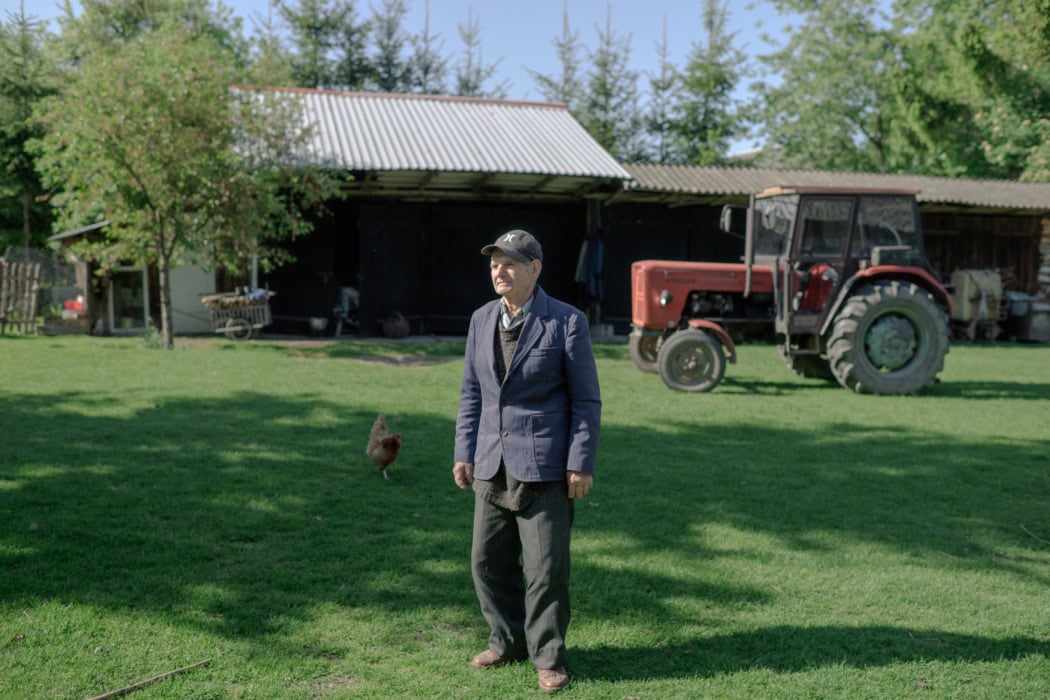 Baranowce, Podlachien, 2024
Baranowce, Podlachien, 2024
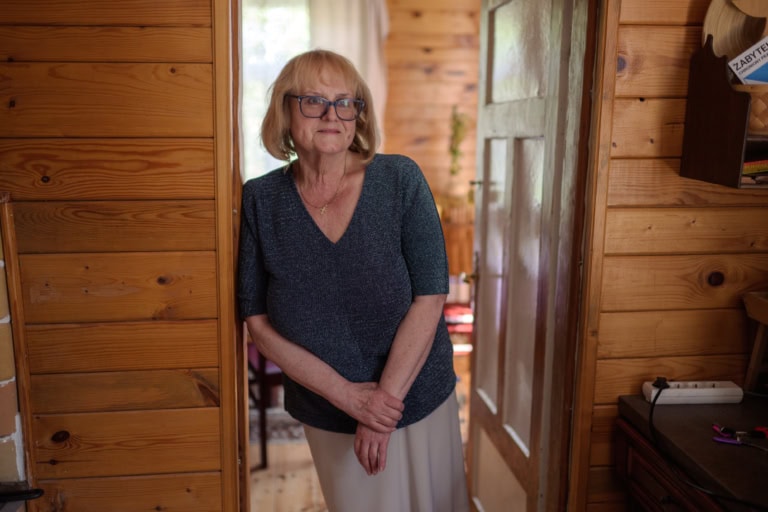 Puchły, Podlachien, 2024
Puchły, Podlachien, 2024
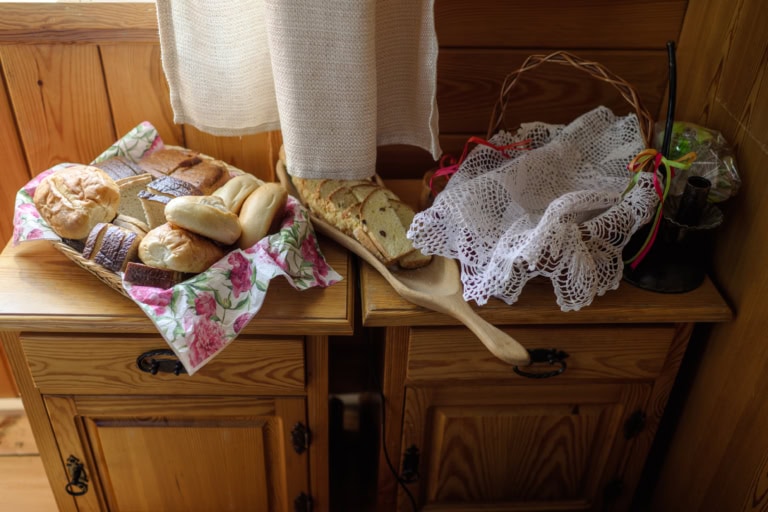 Puchły, Podlachien, 2024
Puchły, Podlachien, 2024
Meine erste Nacht in Podlasie verbrachte ich in dem Dorf Puchły. Ich habe lange gezögert, da die Gegend nur schwer zu erreichen ist ohne Auto. Als ich schließlich dort ankam und die Gastgeberin, Maria, kennenlernte, bereute ich es nicht im Geringsten.
 Pasha Kritchko
Pasha Kritchko
 Courtyard of an agro-tourist estate in the village of Puchły, Poland, on 4 May 2024
My first night on Podlasie I stayed in the village of Puchły, Poland, in a small agro-tourist estate and rented a room for one night. I hesitated for a long time before booking a room there because of the difficulty of getting there without a car. As a result, I didn’t regret it at all when I ended up there and met the hostess, Maria, with whom I had a very pleasant contact and conversation about life, the world, myself, and the circumstances. Maria said that I could join their Easter family breakfast and be at home because it is not good to be alone on such a holiday, and I could be part of their family. The breakfast itself was very reminiscent of my family’s tradition of getting together for Easter.
Courtyard of an agro-tourist estate in the village of Puchły, Poland, on 4 May 2024
My first night on Podlasie I stayed in the village of Puchły, Poland, in a small agro-tourist estate and rented a room for one night. I hesitated for a long time before booking a room there because of the difficulty of getting there without a car. As a result, I didn’t regret it at all when I ended up there and met the hostess, Maria, with whom I had a very pleasant contact and conversation about life, the world, myself, and the circumstances. Maria said that I could join their Easter family breakfast and be at home because it is not good to be alone on such a holiday, and I could be part of their family. The breakfast itself was very reminiscent of my family’s tradition of getting together for Easter.
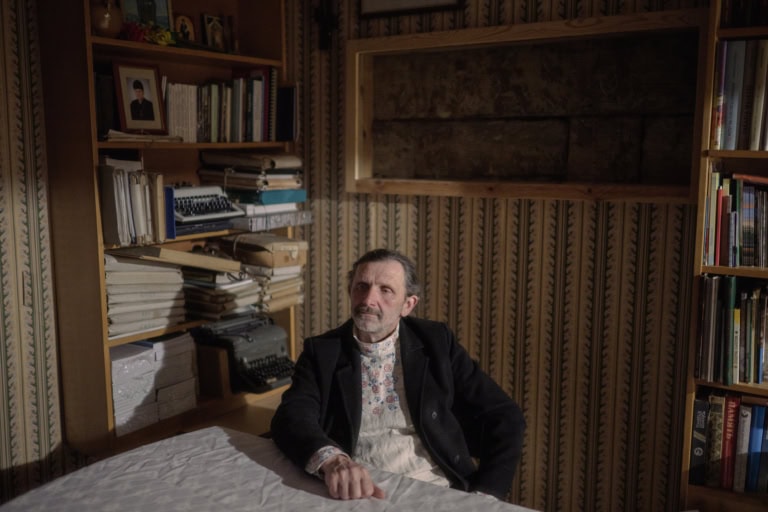 Dorotheus Fionik in the Museum of the Little Homeland in the village of Stdivody (Bielsk Podlaskie, Poland). The Museum of the Little Fatherland in Studivody began with the wooden house of my great-grandfathers, built in 1925. The last resident of this house was Jakub Kondratiuk, my grandmother Hrystyna's brother. He was a lonely man, he had no children, but he treated me like a grandson. And he willed me this house in 1986, when I was eighteen years old. And in this house I organized a museum."
Dorotheus Fionik in the Museum of the Little Homeland in the village of Stdivody (Bielsk Podlaskie, Poland). The Museum of the Little Fatherland in Studivody began with the wooden house of my great-grandfathers, built in 1925. The last resident of this house was Jakub Kondratiuk, my grandmother Hrystyna's brother. He was a lonely man, he had no children, but he treated me like a grandson. And he willed me this house in 1986, when I was eighteen years old. And in this house I organized a museum."
 Vera Nicheporuk holding lyrics of the song “Oreszki.” It is written in Latin script, but the text itself is in a local dialect, a mixture of Belarusian, Ukrainian, Polish, and Russian. 7 May 2024, village Malinniki, Poland. Vera is one of the best performers of traditional folk songs in Podlasie. She is a member of the Malinniki group from the town of the same name in Podlasie. “Once there were no cars here, we painted eggs for Easter, walked a kilometer to the garden outside the village, held hands, danced in a circle, and sang songs together. It was fun, but now the noise of cars has caused everything to disappear.” She lives together with her husband, Petr Nicheporuk, in Baranowce village.
Vera Nicheporuk holding lyrics of the song “Oreszki.” It is written in Latin script, but the text itself is in a local dialect, a mixture of Belarusian, Ukrainian, Polish, and Russian. 7 May 2024, village Malinniki, Poland. Vera is one of the best performers of traditional folk songs in Podlasie. She is a member of the Malinniki group from the town of the same name in Podlasie. “Once there were no cars here, we painted eggs for Easter, walked a kilometer to the garden outside the village, held hands, danced in a circle, and sang songs together. It was fun, but now the noise of cars has caused everything to disappear.” She lives together with her husband, Petr Nicheporuk, in Baranowce village.
Zwischen den Sprachen: Das Lied «Oreszki» ist in einem lokalen Dialekt aus Weißrussisch, Ukrainisch, Polnisch und Russisch verfasst – in lateinischer Schrift.
Ich denke, für viele ist das gemeinsame Zusammensein genauso wichtig wie die Tradition an sich.
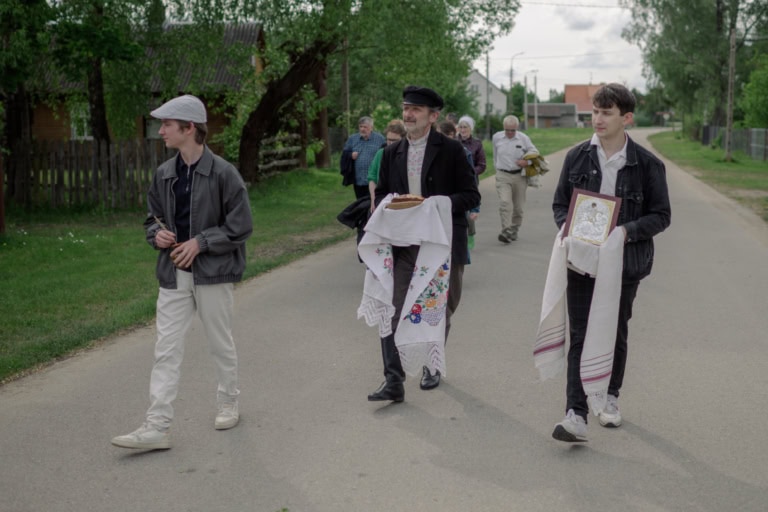 Studivody, Podlachien, 2024
Studivody, Podlachien, 2024
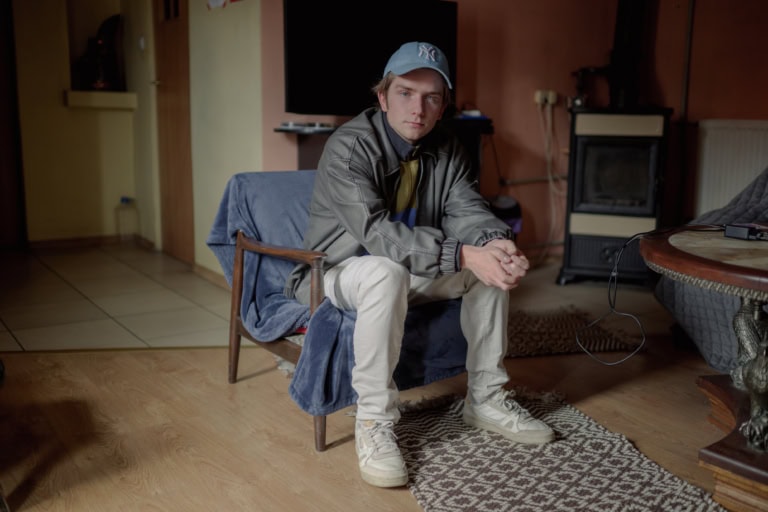 Elias Fionik (son of Dorotheus Fionik) in an improvised music studio in Bielsk Podlask. Dorotheus has two sons, one is Elias and the other is Maxim. Maxim helps his father more in the preservation and promotion of traditions and culture and participates in the collective of the traditional song "Zhemerva", and Eliash, as it seemed to me, is a little further in this regard (maybe because he is the youngest) and he believes that to to promote traditional culture, it is not enough for the accordion and how it was done before and that he is more interested in making traditional culture more accessible through modern music. Therefore, he tries to participate in his own project and write music, songs in the Podlaskie (local) dialect.
Elias Fionik (son of Dorotheus Fionik) in an improvised music studio in Bielsk Podlask. Dorotheus has two sons, one is Elias and the other is Maxim. Maxim helps his father more in the preservation and promotion of traditions and culture and participates in the collective of the traditional song "Zhemerva", and Eliash, as it seemed to me, is a little further in this regard (maybe because he is the youngest) and he believes that to to promote traditional culture, it is not enough for the accordion and how it was done before and that he is more interested in making traditional culture more accessible through modern music. Therefore, he tries to participate in his own project and write music, songs in the Podlaskie (local) dialect.
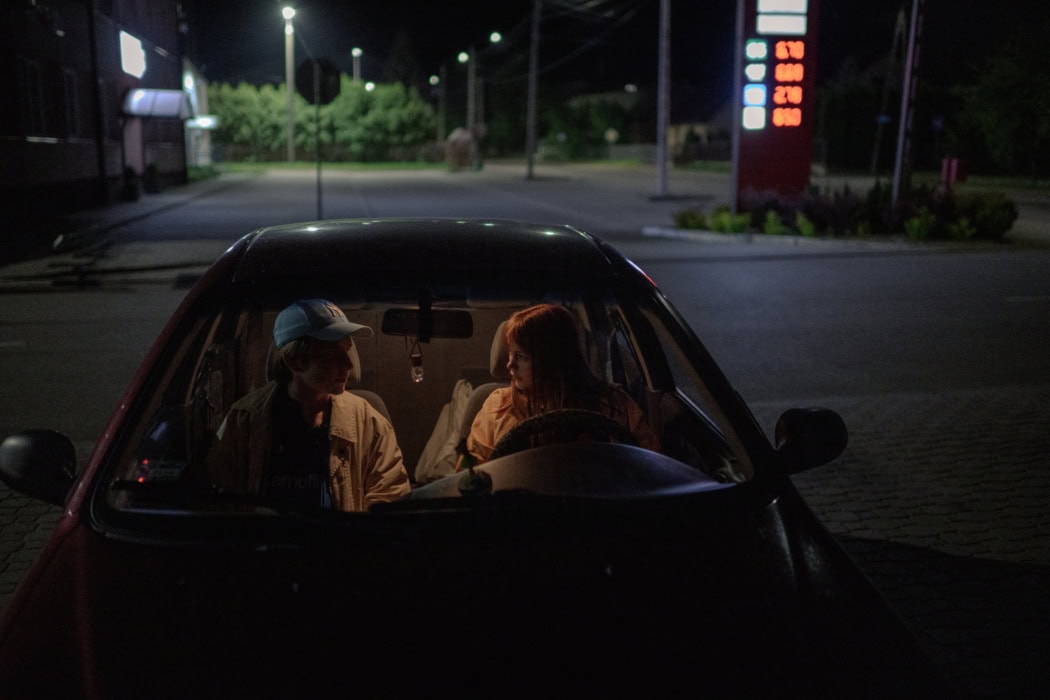 Elias Fionik and Agatha on the way to the music studio in Bielsk Podliaski, Poland, on 7 May 2024.
Dorotheus Fionik has two sons, one is Elias, and the other is Maxim. Maxim helps his father more in the preservation and promotion of traditions and culture and participates in the traditional song collective “Zhemerva,” while Elias, as it seemed to me, is a little further removed in this regard (maybe because he is the youngest). He believes that to promote traditional culture, the accordion alone and the old methods are not enough. He is more interested in making traditional culture more accessible through modern music. Therefore, he tries to participate in his own project and write music and songs in the Podlaskie (local) dialect.
Elias Fionik and Agatha on the way to the music studio in Bielsk Podliaski, Poland, on 7 May 2024.
Dorotheus Fionik has two sons, one is Elias, and the other is Maxim. Maxim helps his father more in the preservation and promotion of traditions and culture and participates in the traditional song collective “Zhemerva,” while Elias, as it seemed to me, is a little further removed in this regard (maybe because he is the youngest). He believes that to promote traditional culture, the accordion alone and the old methods are not enough. He is more interested in making traditional culture more accessible through modern music. Therefore, he tries to participate in his own project and write music and songs in the Podlaskie (local) dialect.
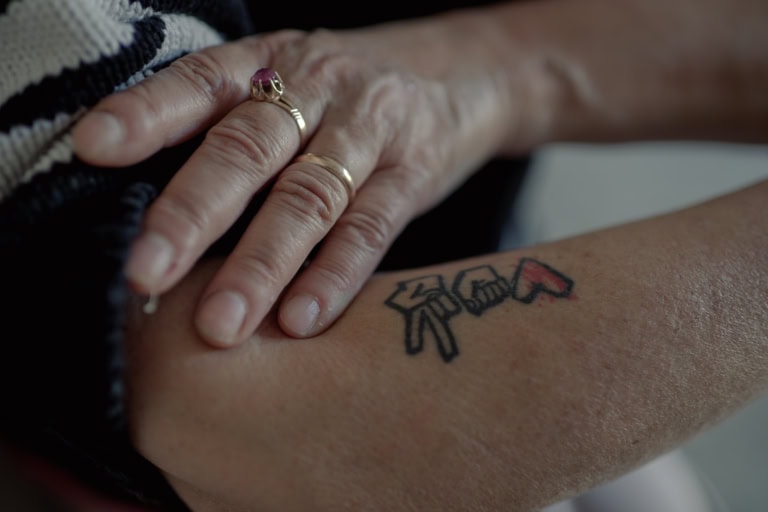 Tattoo of the symbol of the unification of 3 political opposition headquarters in the 2020 elections in Belarus on the hand of Alina Wavrenyuk. 12 May 2024, Bialystok, Poland.
She is a teacher of the Belarusian language and also heads the theater club for pupils in School N4 in Bialystok, Poland. Alina and her husband, journalist Mikolaj Vavreniuk, live in the small village of Gredel in the Podlasie region. They were born in Poland and identify as Belarusians.
“I have never lived in Belarus, but this does not prevent me from feeling like a Belarusian,” Mikolaj said.
Tattoo of the symbol of the unification of 3 political opposition headquarters in the 2020 elections in Belarus on the hand of Alina Wavrenyuk. 12 May 2024, Bialystok, Poland.
She is a teacher of the Belarusian language and also heads the theater club for pupils in School N4 in Bialystok, Poland. Alina and her husband, journalist Mikolaj Vavreniuk, live in the small village of Gredel in the Podlasie region. They were born in Poland and identify as Belarusians.
“I have never lived in Belarus, but this does not prevent me from feeling like a Belarusian,” Mikolaj said.
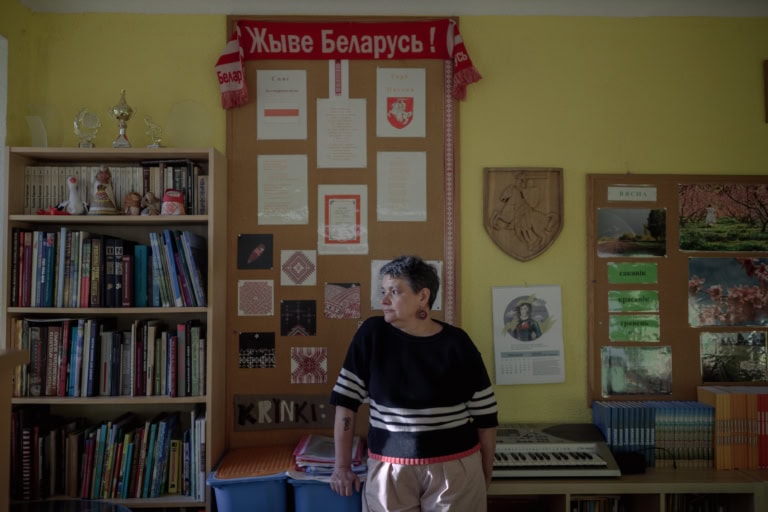 Belarusian language teacher Alina Wavrenyuk in her office in School 4 in Białystok.
Belarusian language teacher Alina Wavrenyuk in her office in School 4 in Białystok.
Die Stadt Bielsk löste in mir ein Gefühl der Leere aus. Für junge Menschen gibt es hier wenige Plätze, wo sie sich aufhalten konnten.
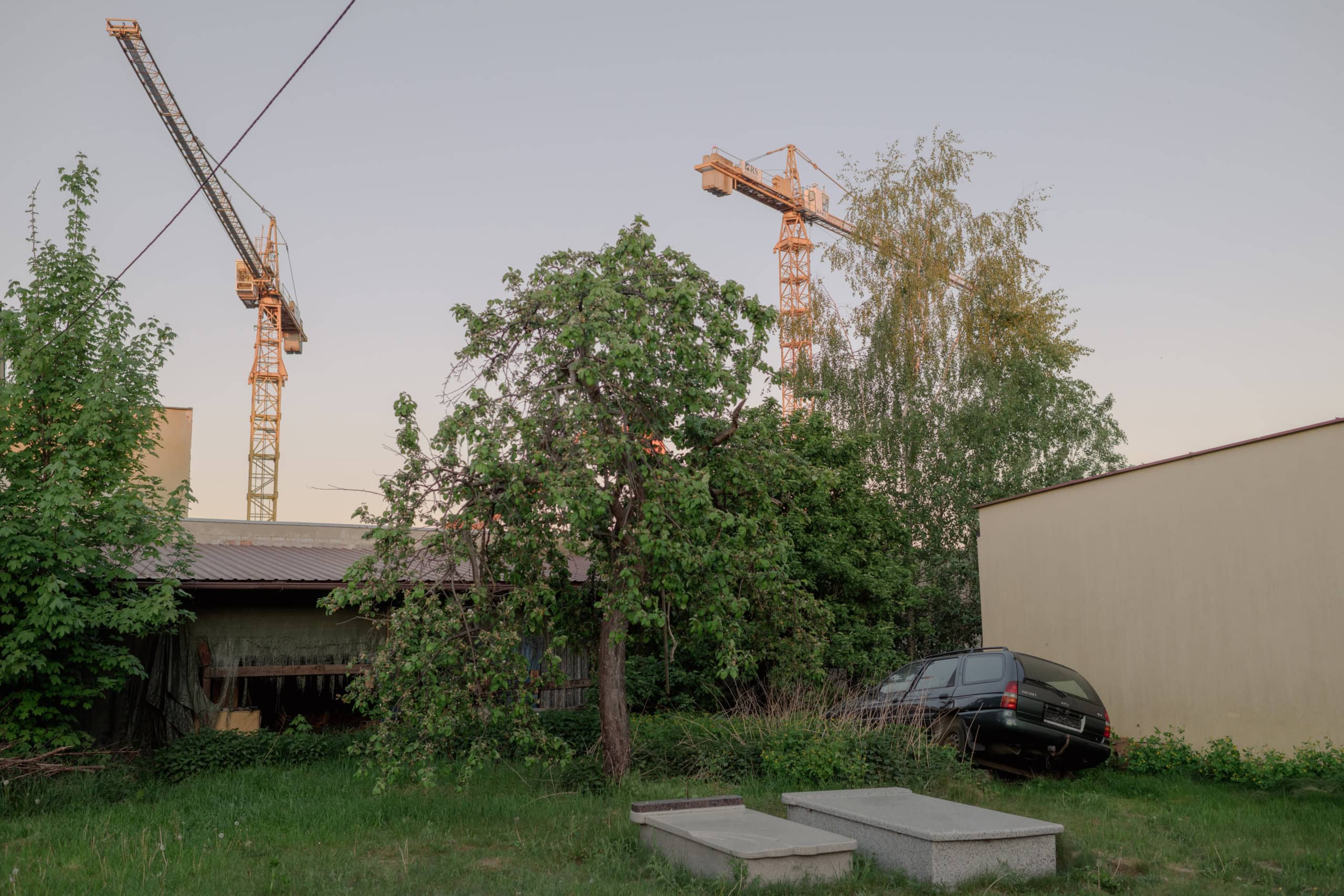 Plot near the market in Bielsk – Podlyashskyi. I wanted to see how the city lives and try to find places where there are people on the street, because in general there was a feeling of emptiness, that there are especially no places where young people can hang out, except for the Park and a few benches near the city hall.
Plot near the market in Bielsk – Podlyashskyi. I wanted to see how the city lives and try to find places where there are people on the street, because in general there was a feeling of emptiness, that there are especially no places where young people can hang out, except for the Park and a few benches near the city hall.
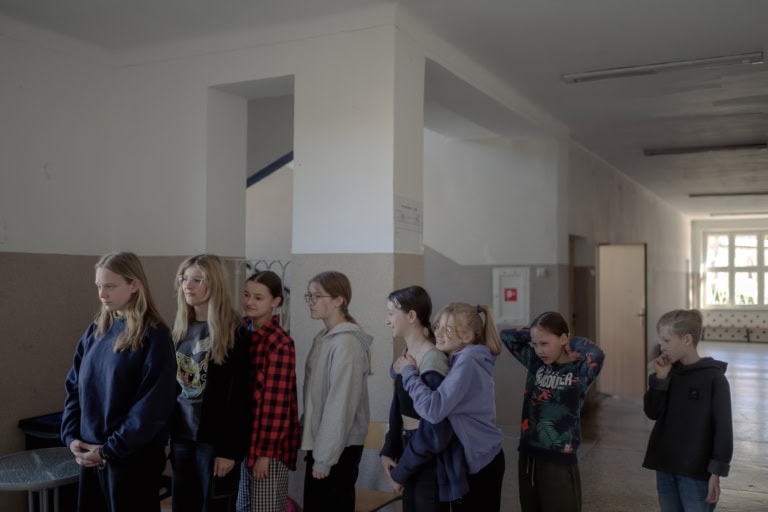 Children participating in the theater club rehearsal of a play about Belarus under the guidance of Belarusian language teacher Alina Wavrenyuk in School 4 in Białystok on 12 May 2024.
All these children were born outside of Belarus, but for certain reasons, mostly due to the fact that their parents identify themselves as Belarusians in Poland, they send their children to school to study the Belarusian language. I asked the children themselves why they learn the Belarusian language in Poland, but I only heard an opinion about the habit, that they went to kindergarten, where they also studied the Belarusian language and continue to do so at school and even after moving on from school, continue to participate in the theater club in the Belarusian language.
Children participating in the theater club rehearsal of a play about Belarus under the guidance of Belarusian language teacher Alina Wavrenyuk in School 4 in Białystok on 12 May 2024.
All these children were born outside of Belarus, but for certain reasons, mostly due to the fact that their parents identify themselves as Belarusians in Poland, they send their children to school to study the Belarusian language. I asked the children themselves why they learn the Belarusian language in Poland, but I only heard an opinion about the habit, that they went to kindergarten, where they also studied the Belarusian language and continue to do so at school and even after moving on from school, continue to participate in the theater club in the Belarusian language.


